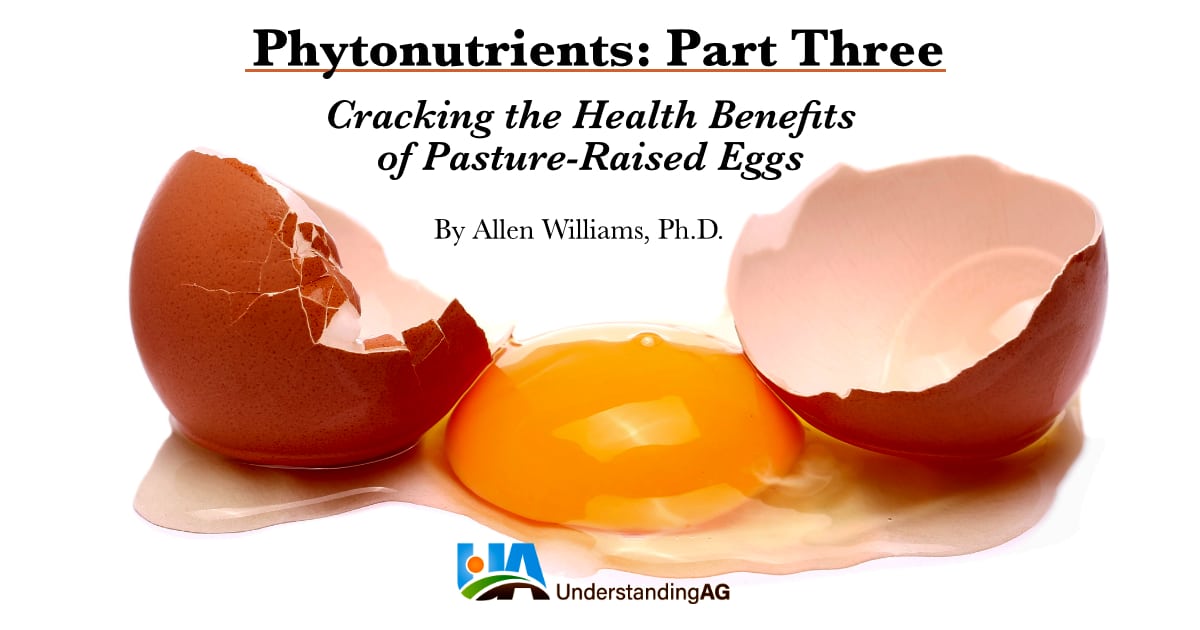
An egg produced by a laying hen raised on pasture is a self-contained nutrient powerhouse. It is hard for any single food to match the nutrient density in a pasture-raised egg. We all know that egg whites are loaded with protein and essential amino acids, but are you aware of the incredible nutritional value of egg yolks?
Egg yolks from pasture-raised eggs…
- Have significantly higher levels of folate and vitamin B12.
- Have far more choline than commercially produced eggs.
- Choline is a B vitamin that is crucial in brain development.
- It plays an important role in muscle control and memory.
- Choline is necessary for cell membrane health.
- Choline has strong anti-inflammatory properties.
- About 90% of the U.S. population is deficient in choline.
- As many as 95% of pregnant women are choline deficient.
- Our bodies can only synthesize small amounts of choline, so getting it in our diet is vital.
- A single egg yolk contains about 215 mg of choline.
- Are rich in vitamins A, D, E and K. Much of this richness is not found in egg whites.
- Compared to commercial eggs, pastured-raised eggs have:
- 2-3 times more vitamin A
- Three times more vitamin E
- Significantly higher in vitamins D and K.
- Have 2-3 times more omega-3 fatty acids and a far better Omega-6 to Omega-3 ratio.
- Also contain significant amounts of lutein and zeaxanthin.
- Both are carotenoids.
- Lutein is functional in the macular pigment in our eyes. It protects our central vision and aids in blue light absorption.
- Lutein helps the retina of our eyes maintain detailed central vision.
- Zeaxanthin is an antioxidant carotenoid found in the retina of both eyes and helps to properly absorb excess photon energy and quench free-radicals before they damage the lipid membranes in our eyes.
- Together Lutein and Zeaxanthin are crucial for vision health.
- Are rich in the minerals calcium and cooper.
- Compared to commercial eggs, pastured-raised eggs have:
Research on the Benefits of Egg Yolks
A study published in the American Journal of Clinical Nutrition showed that eating eggs and egg yolks was not associated with an increased risk of coronary artery disease. Even with carriers of the ApoE4 gene, which makes people highly susceptible to heart disease. To the contrary, research shows that dietary cholesterol from egg yolks actually increases HDL cholesterol (high-density lipoprotein), which is the good form of cholesterol. HDL cholesterol actually helps remove excess arterial plaque and keeps arteries clean.
How can you find healthy eggs?
The key to finding true pasture-raised eggs is to buy from a local, trusted source. When purchasing eggs from a supermarket grocery store, you need to be aware that labels can be deceptive. The USDA approved labels for “Pasture-Raised,” “Free-Range” and “Cage Free” can be deceiving. Most of the time this simply means the chickens have access to the outdoors, but rarely actually go outdoors. Most are in static houses that are not movable.
True pasture-raised chickens live in portable houses that are moved frequently. This is important because most of the nutrients the chickens need to produce healthy eggs comes from the plants they forage on and the insects and worms they eat. Only chickens that are moved frequently, on pasture, have this ability. In short, cracking the nutritional potential of pasture-raised eggs comes down to knowing what your food ate, and then making your purchasing decisions accordingly.
